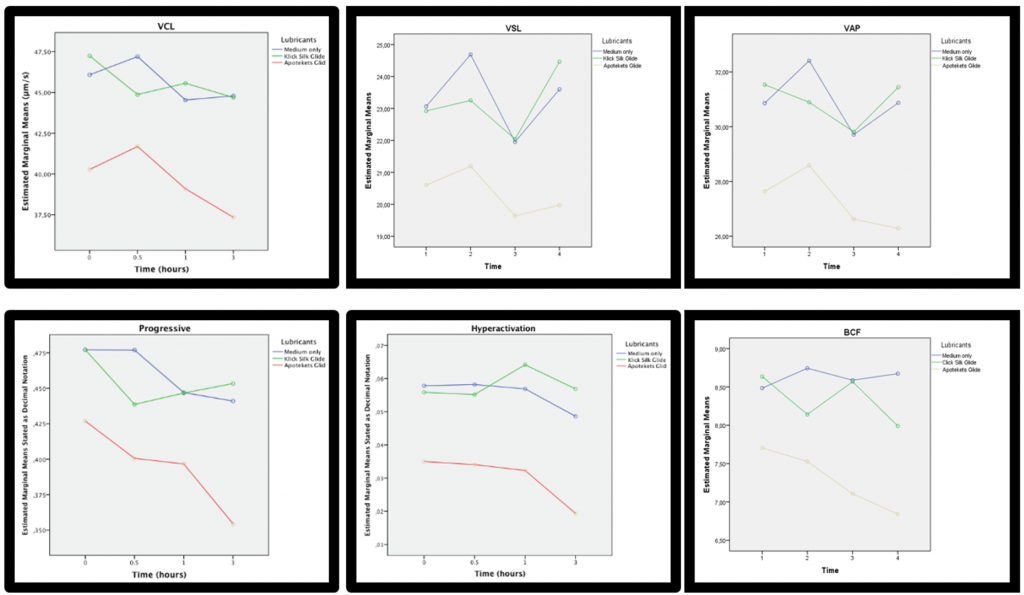Personal lubricants; for or against conception?
Personal lubricants are occasionally demanded during intercourse or semen collection in clinical settings. This could be posing a problem for couples looking to conceive, as several lubricants have been reported to decrease sperm functional parameters, especially sperm motility as the most important marker of a successful transport of the spermatozoa through the female reproductive tract.
A preliminary study performed as a bachelor (B.Sc.) project at Aalborg university (Aalborg, Denmark) assess the effect of two commercially available lubricants in the Danish market (Apotekets Glid: water-based, Klick Silk Glid: silicon-based) on the motility characteristics of human sperm maintained in “Sperm Preparation medium” (ORIGIO A/S, Denmark) alone or including 10% of the respective lubricants. Sperm motility characteristics were assessed by the SCA® (Sperm Class Analyzer, Microptic S.L., Spain) following 0, 0.5, 1, and 3 hours.
The results demonstrated that sperm in culture medium with 10% water-based lubricant, resulted in a significantly lower curvilinear velocity (VCL), straight line velocity (VSL), average path velocity (VAP), beat cross frequency (BCF) and lower percentage of fast progressively motile sperm compared to the control group after 3 hours. The percentage of hyperactive sperm in the water-based lubricant was also significantly lower than the silicone-based group after 3 hours.
This indicated that the silicone-based lubricant (Klick Silk Glide) is less detrimental for sperm quality in terms of motility and kinematic parameters compared to water-based lubricant (Apotekets Glid).
Therefore, it can be suggested that when trying to conceive, both naturally or when collecting semen samples with the use of the lubricant, the silicon based Klick Silk Glide lubricant could have lower adverse effects on the sperm motility parameters compared to the water-based Apotekets Glid lubricant suggesting its safe use in fertility patients as required during sperm collection.
Hiva Alipour (D.V.M, PhD. Stud.)
Research Assistant (Department of Health Science and Technology, Aalborg University, Denmark)
Consultant, Scientific specialist (Microptic S.L., Spain)




Leave A Comment